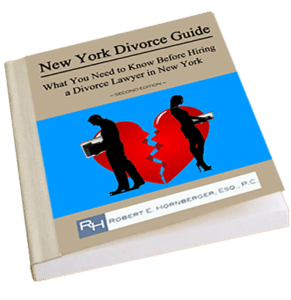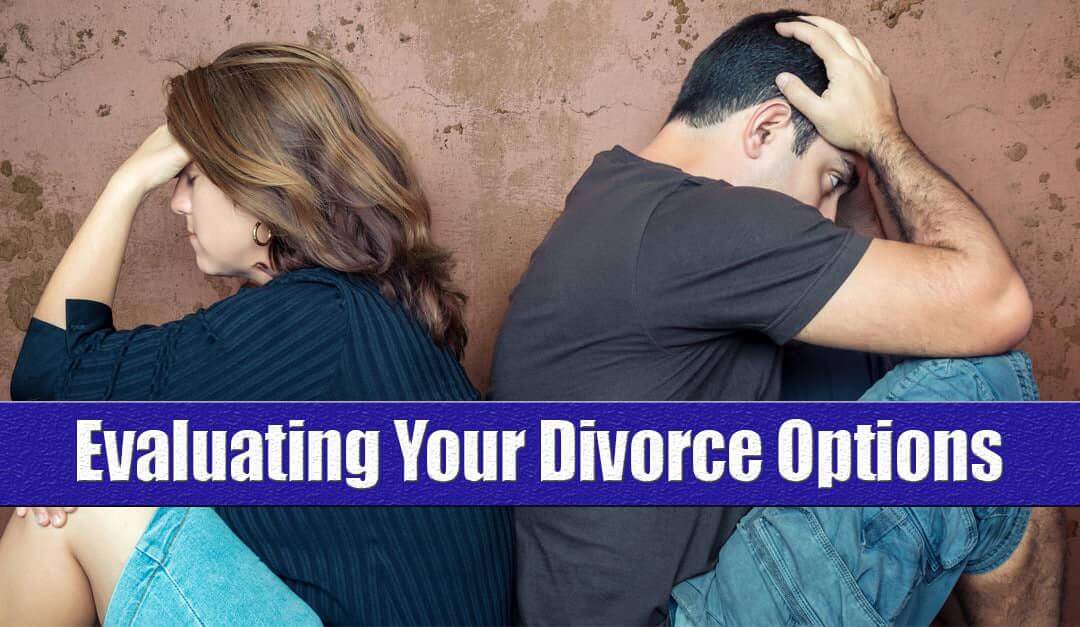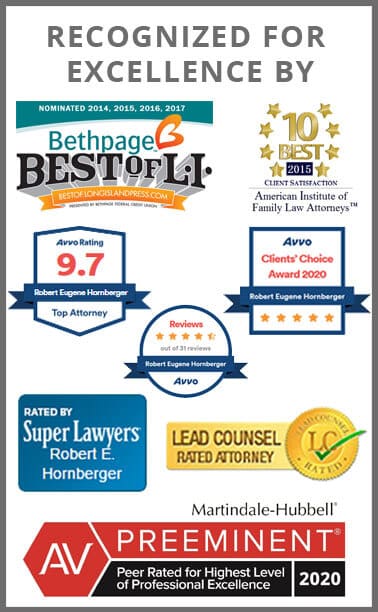As an experienced divorce attorney, mediator and collaborative divorce lawyer, who meets with Long Islanders considering divorce, I understand that most people are not aware of all the different options you have to legally end your marriage in New York state. If you are considering divorce or have already begun the process, you may be wondering what your options are and how to decide what will be best for you and your family.
What Options do I Have When it Comes to Divorce?
On Long Island, NY, there are several ways to come to a finalized divorce agreement. Many are surprised to learn that they do not all involve going to court. In fact, you are free to come to a settlement agreement with your spouse that addresses all of the factors at issue in the divorce in many ways. You also have the option of going to Divorce Mediation with a third party divorce mediator. Finally, a process known as Collaborative Divorce is also available to you. These are all highly effective and often efficient methods of reaching divorce.
Can my Spouse and I Create an Agreement on our own?
In order to save significant time, money and energy, you and your spouse can come to an agreement on your own. This option is typically only practical in situations where there are few assets, no children, and/or absolutely no disagreement about the terms of divorce. Of course, we would advise that your agreement is reviewed by an attorney to ensure that it ultimately addresses everything necessary to facilitate the finalization of your divorce. In more complicated situations involving disagreements about assets, maintenance payments, and children, this is likely not a viable option. In situations that are not simple and straightforward, you would be wise to consider one of the below options instead.
What is Divorce Mediation?
One alternative to a court proceeding is divorce mediation with a neutral third party mediator. You and your spouse will have a series of meetings with the mediator and will work together through all of the issues in your divorce. This is an often far less costly and time intensive process when you and your spouse are willing to negotiate and make some compromises. Once you have addressed and decided upon all of the issues, you will each sign and submit your settlement agreement to the court.
What are the benefits and disadvantages of Divorce Mediation?
Mediation is a more efficient method of divorce than a court proceeding, saving time, money, and stress to all those involved. You will not need to wait idly for court deadlines and hearing dates. You will not need to wait for, or be at the mercy of, the court’s decisions on the issues that are most important to you. Furthermore, your issues and discussions remain private and do not need to be dragged out in front of the court. In divorce mediation, you also retain a level of control over the outcome of the issues in your divorce, as you and your spouse retain the power to make decisions rather than handing over that power to a judge.
There are few, if any, disadvantages to Divorce Mediation. One thing that you may not be thrilled to hear is that you will have to work with your spouse to come to an agreement, which can be difficult when going through a divorce and not getting along. You may need to make concessions and/or compromises. However, remember that this is a small price to pay for skipping long, drawn out litigation in a Nassau County or Suffolk County courtroom.
What is Collaborative Divorce?
Collaborative Law is a divorce dispute resolution process in which both spouses, along with their respective attorneys, commit to resolving differences fairly and equitably without resorting to or the threat of going to court. Collaborative Divorce is a cost-efficient and respectful way of reaching agreements that work for both of the spouses and their families. The process resembles Mediation but involves representation by Collaborative Divorce Attorneys on both sides, as well. These attorneys will advocate and negotiate on your behalf until a settlement is reached, as well as agree that the case will not ultimately end up in court.
What are the benefits and disadvantages of Collaborative Divorce?
The biggest benefit of Collaborative Divorce is that it keeps the divorce out of court. Collaborative Divorce attorneys remain committed to keeping the matter out of court, and cannot even represent their clients in court as part of their role. Like Divorce Mediation, Collaborative Divorce keeps the issues of the divorce confidential. It is also usually less expensive and less stressful than going to court. There are virtually no disadvantages to Collaborative Divorce when compared to court. However, when compared to Divorce Mediation, keep in mind that both you and your spouse will be paying attorneys separately, and this can add up to a larger cost than Divorce Mediation.
What should I know about Divorce Litigation?
If you and your spouse cannot agree on the terms of your divorce, or cannot agree on certain matters in your divorce, you may ultimately have to litigate your divorce case in a courtroom. To commence the divorce proceeding, your spouse must be served with a Summons and Complaint. These documents notify him or her of the proceeding and provide them an opportunity to appear. Courts will encourage settlement throughout the process, and you and your spouse are encouraged to come to an agreement on as many issues as possible and leave only the most contentious issues up to the judge. Extensive Discovery will be held, which means that you and your spouse will have to share extensive records with each another’s attorneys in order to evaluate assets and allow both sides to determine all of the facts at issue. Ultimately, the court will hear all of the facts and make decisions on all unresolved issues, which might include child custody and visitation, child support, spousal support and maintenance, and division of assets.
What is No-Fault Divorce?
Under New York state’s no-fault divorce law, courts can grant a divorce based upon “irreconcilable differences” in the marriage, rather than requiring that fault be placed on one spouse or the other. This means that there is no hearing about who is at fault for the divorce. Instead, the court will honor the irreconcilable differences ground for divorce if one spouse swears to the breakdown under oath. The no-fault law removes this hurdle, but does not by any means resolve all of the issues that must be addressed in divorce.
However, if your spouse does appear and contest the divorce, this complicates matters. While he or she cannot stop the proceeding, and cannot contest the no-fault grounds for the divorce, they can certainly prolong or complicate matters by contesting other issues, like distribution of property or child custody and visitation. The judge will hear the evidence and testimony on all issues that are in dispute. This process will cost you both time and money, but once a judge decides these issues, the divorce will be granted.
What are some other important considerations for divorce?
Divorce is never a quick and easy process, and there are most likely some concessions that you will have to make as a result of ending a marriage. Decide which issues are most important to you and being willing to make compromises on other, less important issues are the keys to successful resolution of your divorce. The more that you can cultivate a cooperative spirit, the more likely you are to reach a quicker and more peaceful resolution. Unfortunately, many spouses become indignant during divorce, which ends up costing them more in the long run.
Contact an Experienced Long Island Divorce Attorney for Assistance
If you have questions about your options when it comes to divorce, or are considering any of the above, or if there are issues that you and your spouse cannot seem to agree upon and you would like to learn more, it is important that you reach out to an experienced Long Island divorce attorney for advice. The attorneys at the Law Office of Robert E. Hornberger, P.C. are here to assist you with all of your divorce and family law needs on Long Island, serving Suffolk County, Nassau County, and New York City. Call our office today at 631-923-1910 for a free consultation.
For more information about Divorce on Long Island, visit this page: Divorce Lawyers Answer Questions about Long Island Divorce

Download Your Free New York Divorce Guide
Our 41-page “Guide to New York Divorce: What You Need to Know Before Hiring a Divorce Lawyer in New York” written by an experienced family law lawyer, Long Island’s Robert E. Hornberger, Esq., provides you with real information on the divorce process and the laws it rests upon in the state of New York. This book will help give you a solid foundation upon which you can begin the process of making your family’s, life better.







